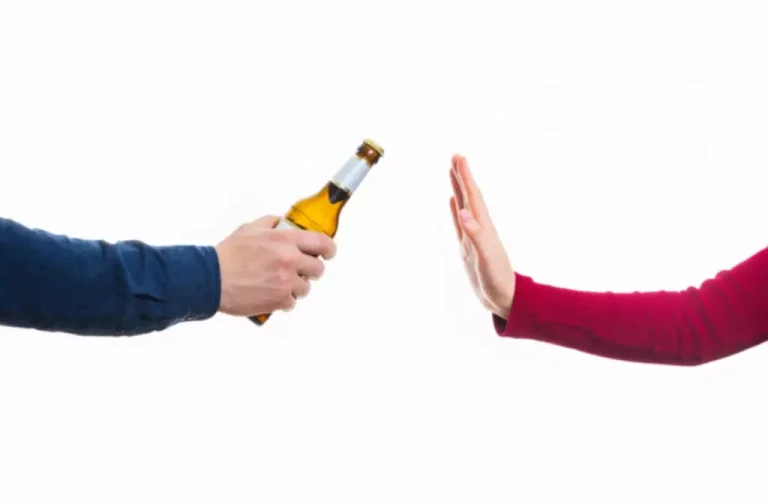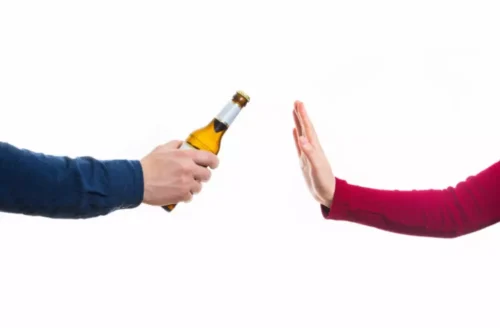
Mood swings and irritability are common during withdrawal. These unpredictable changes in mood and temperament are the result of your brain chemistry trying to stabilize itself without the influence of alcohol. Some people quit drinking and seem to immediately come alive with excitement and enthusiasm for the new life ahead. As if all the emotions you were avoiding had been frozen in time, and suddenly become a wash of white-water rapids flooding through your day-to-day life. Various feelings can flow together and morph quickly into other things — like anger and irritability.

Is Addiction A Choice Or A Disease?
Treatment for alcohol use disorder may involve a range of approaches, from brief interventions and individual or group counseling, to outpatient programs or residential inpatient stays. The main goal of these treatments is to stop alcohol use and improve the quality of life 5. While the duration of depression can vary widely, it’s important what happens when you stop drinking alcohol to note that support and professional help should be sought throughout this journey. Depression is a serious condition that can greatly affect one’s quality of life.
The Role of Medical Supervision in Recovery
This activity helps us feel alert, but it also makes us feel anxious in excess. It’s why alcohol is like gasoline on a fire for people with anxiety. Alcohol enhances the activity of GABA receptors, which gives us that initial feeling of relaxation and decreased anxiety. And that all makes you feel depressed, anxious, and like staying in bed all day.
Timeline of Alcohol Withdrawal Symptoms
The potential for improved mental health with sustained sobriety is significant. Many individuals report better mood, increased energy, improved relationships, and a greater sense of overall well-being as they progress in their recovery journey. The timeline of depression after quitting alcohol can vary significantly from person to person, but there are some general patterns that many experience. Alcohol withdrawal symptoms can be greatly reduced or even eliminated with proper medical care. There are specific treatments available for anyone who wants to stop drinking—even after long-term, chronic alcohol use. So for individuals who suffer from depression and abuse alcohol, it’s not that giving up alcohol makes you depressed.
- It’s also important to be aware of potential triggers and have a plan in place to manage them.
- Give us a call today to verify your insurance coverage or to learn more about paying for addiction treatment.
- Managing the symptoms of PAWS often involves a combination of medical support and lifestyle adjustments.
- People who drink daily or almost every day should not be left alone for the first few days after stopping alcohol.
- However, when you stop drinking, your risk of developing these diseases decreases.
Some people may be helped by this supplement, but studies have not shown that it’s effective at crossing the blood-brain barrier. (source) I have never felt any effect from taking GABA supplements. If a GABA supplement comes out that changes my mind, I will write about it. Alcohol is a depressant that mimics GABA, which is the primary “inhibitory” or calming neurotransmitter in our brains. The alcoholic brain decreases its long-term GABA production because it has learned to rely on alcohol for the same effect. Cori’s key responsibilities include supervising financial operations, and daily financial reporting and account management.


Located in Boise, Idaho, Northpoint Recovery is proud to offer quality drug and alcohol detox as well as alcohol and drug rehab and mental health treatment programs in the Treasure Valley. Family therapy sessions can help loved ones understand the root causes of mood swings and addiction. Open communication in a safe environment allows families to heal together and provides a supportive network for the individual in recovery. Unresolved resentments can fuel mood swings and emotional instability. Therapy can guide individuals to confront their feelings, understand their role in conflicts, and learn to forgive.

However, some people can continue to experience disruptive symptoms for months. For those with alcohol use disorder, withdrawal is just the first (but very important) step on a long journey to recovery. These first few weeks are critical because they are when the risk of relapse is highest. There are many benefits to giving up alcohol, both short-term and long-term. If you’re considering quitting drinking, these benefits may be just what you need to help you decide.
- Drinking doesn’t change the structure of your brain overnight, and it won’t be fixed that way, either.
- Research has linked the development of depression symptoms in adolescents to regular or heavy alcohol use.
- It’s completely okay to feel overwhelmed by these shifts; they’re a testament to your body and mind healing.
- Additionally, research has shown that neurogenesis, the process of creating new neurons – brain cells – can occur even in adulthood.
By Sarah Bence, OTR/LBence is an occupational therapist with a range of work experience in mental healthcare settings. People who drink daily or almost every day should not be left alone for the first few days after stopping alcohol. Withdrawal symptoms can quickly go from a bad hangover to a serious medical situation. While it has been suggested that one or two drinks per day may have health benefits, one meta-analysis found that even moderate intake has serious health risks.

We roll that dice because drinking is supposed to be fun, even if it makes you act completely out of character. There is also a physical and emotional impact of drinking that can affect your mood. The good news, according to this study, is that many of these alcohol-induced symptoms and conditions disappear after several days and weeks of abstinence from alcohol. Alcohol causes dehydration which can also lead https://ecosoberhouse.com/ to irritability, mood swings, fatigue, headaches, and feeling pretty lousy. This translates to increased stress and anxiety levels when you’re not drinking.